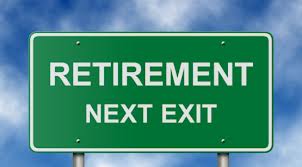I have received this question often: What does a broker do to earn their pay? I want to preface this by saying that I am referencing brokers with integrity in this article. Just as there are good dentists and not-so-good dentists in the world. The same can be said for brokers there are some good ones and some that give the profession a bad name.
A good broker will be worth every penny you pay them.
So, what do they do?
A broker will field and answer the thousands of phone calls, emails, texts, and messages that a seller would have to handle on their own otherwise. This communication may take place by and between the broker and potential purchasers, attorneys, CPAs, potential Lenders, Consultants, Insurance Brokers, property management reps, etc.
The process is repeated with each potential purchaser, and each purchaser can shop as many lenders as they wish. Most shop between two and five lenders.
Here is an example of the communication that took place while representing a seller with just one purchaser.
**I took the time to count the texts, emails, and phone calls because I’ve seen this question so often. It’s time to put some numbers out there.
This is how it went:
• 1023 text messages
• An unknown number of Messenger messages
• 217 emails
• 87 phone calls
*I did not attempt to count the number of hours spent reviewing the reports, agreements, and letters involved in the transaction. There were many.
A broker is on call seven days per week and is rarely without a phone. The best brokers understand their role in the life and career of the seller. The immensity of helping a dentist transition a career, and practice in which they poured a lifetime weighs heavily, as it should.
Brokers work on commission and will spend between three and twelve months working on one transition. If the practice doesn’t sell, the broker doesn’t get paid … anything.
There are a lot of moving parts happening at the same time during a practice transition. The broker is the quarterback of your transition team. It’s their job to make sure everything is moving forward, anticipate and mitigate issues that will inevitably show up just before closing.
That’s a lot to do when there’s a chance of not getting paid anything at all.
If you find a good broker who is willing to do the work and spend the time and energy needed to sell your practice and has good references. Hire this person, they believe in your practice. Also, remember they are working on contingency. They know that they won’t get paid if they don’t find you a buyer that you are happy with.
Finally, Representing yourself in the sale of your practice is just as bad of an idea as representing yourself in court. It’s bad. The purchaser’s advisors know better than you how to navigate and even manipulate the transition. You stand to lose much more than any fee you would pay a broker. You stand to receive less than the value of your practice, and your Legacy.
Part two, with examples of the tasks that a broker handles so the selling dentist doesn’t have to, coming soon.







